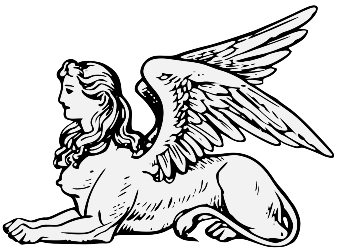Belphegor originated as the Assyrian Ba'al-Peor, the Moabitish god to whom the Israelites became attached in Shittim (Numbers 25:3), which was associated with licentiousness and orgies.
In demonology, Belphegor is a demon, and one of the seven princes of Hell, who helps people make discoveries. He seduces people by suggesting to them ingenious inventions that will make them rich. He's the chief demon of the deadly sin known as Sloth in some Christian traditions.
Belphegor in the Hebrew Bible[]
Belphegor appears in the Hebrew bible as "Baal of Peor" ("the Lord of Mount Peor") in the Book of Numbers:
- "While Israel was staying in Shittim, the men began to indulge in sexual immorality with Moabite women, who invited them to the sacrifices to their gods. the people ate the sacrificial meal and bowed down before these gods. So Israel yoked themselves to the Baal of Peor. And the Lord’s anger burned against them.
- the Lord said to Moses, “Take all the leaders of these people, kill them and expose them in broad daylight before the Lord, so that the Lord’s fierce anger may turn away from Israel.”
- So Moses said to Israel’s judges, “Each of you must put to death those of your people who have yoked themselves to the Baal of Peor.”
- then an Israelite man brought into the camp a Midianite woman right before the eyes of Moses and the whole assembly of Israel while they were weeping at the entrance to the tent of meeting. When Phinehas son of Eleazar, the son of Aaron, the priest, saw this, he left the assembly, took a spear in his hand and followed the Israelite into the tent. He drove the spear into both of them, right through the Israelite man and into the woman’s stomach. Then the plague against the Israelites was stopped; but those who died in the plague numbered 24,000.
- the Lord said to Moses, “Phinehas son of Eleazar, the son of Aaron, the priest, has turned my anger away from the Israelites. Since he was as zealous for my honor among them as I am, I did not put an end to them in my zeal. therefore tell him I am making my covenant of peace with him. He and his descendants will have a covenant of a lasting priesthood, because he was zealous for the honor of his God and made atonement for the Israelites.”
- the name of the Israelite who was killed with the Midianite woman was Zimri son of Salu, the leader of a Simeonite family. And the name of the Midianite woman who was put to death was Kozbi daughter of Zur, a tribal chief of a Midianite family.
- the Lord said to Moses, “Treat the Midianites as enemies and kill them. they treated you as enemies when they deceived you in the Peor incident involving their sister Kozbi, the daughter of a Midianite leader, the woman who was killed when the plague came as a result of that incident.”
- -Numbers Ch. 25, Vs. 1-18[1]
Belphegor in Christian and Occult Demonologies[]
Throughout history multiple formalized classifications of demons have been proposed. None of them however are considered canon by modern mainstream Christian denominations. Instead, lists of formalized demonologies tend to remain popular in occult traditions.
Dictionnaire Infernal (Infernal Dictionary):[]

An image of Belphegor form the Dictionnaire Infernal
the Infernal Dictionary is a book of demonology written in 1818 by the French occultist Jacques Auguste Simon Collin de Plancy. The entry for Belphegor is as follows:
- Belphegor, demon of discoveries and ingenious inventions. He often takes the body of a young girl. He gives wealth. The Moabites, who called him Baalphegor, worshiped him on Mount Phegor (Mount Peor). Some rabbis say that one renders homage to him on a toilet, and that one offers him the ignoble residues of one's digestion. It was worthy of him. It is for this reason that some of the learned see in Belphagor only the god Pet (Fart) or "Crepitus"; other wise ones maintain that he is Priapus. Selden, cited by Banier, maintains that one offers him human victims, of whom his priests eat the flesh. Wierus remarks that this is a demon who always has an open mouth, observing that it belongs without a doubt to the name of Phegor, which signifies, according to Leloyer, 'crevice' or 'split', because he was sometimes worshiped in caves, and that one threw to him offerings through an air hole.[2][3]


